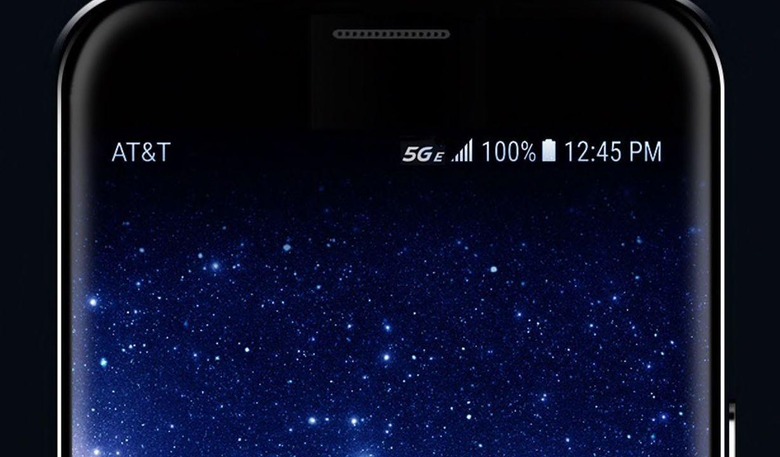AT&T's Fake 5G Icon Is Now The Subject Of A Sprint Lawsuit
Back in December, AT&T started rolling out "5G E" branding to some of the phones on its network. 5G E, as AT&T claims, stands for "5G Evolution," or the precursor to the nationwide 5G networks carriers are beginning to build out. There's just one problem: AT&T doesn't offer phones that support 5G yet, and what it brands as "5G E" is actually just 4G LTE Advanced.
While 4G LTE Advanced is certainly more capable than standard LTE, it isn't 5G in any real sense. This decision to brand 4G LTE Advanced connections as 5G E is one that's drawn a lot of ire from consumers and competitors alike, but AT&T pushed forward, releasing advertisements touting 5G Evolution and updating phones on its network to carry the questionable branding.
The response from AT&T's biggest competitors has been varied. T-Mobile settled for roasting AT&T on Twitter, while Verizon published a serious letter urging the mobile industry at large not to give in to the temptation to mislead customers with bogus branding. Sprint's response, however, is far more serious, as it's brought a lawsuit against AT&T with that 5G E branding at the center of it.

The lawsuit, which was uploaded to Scribd by Engadget, alleges that AT&T is partaking in false and misleading advertising to gain an unfair advantage over its competitors. Sprint argues that AT&T is misleading consumers into thinking that it's offering something other carriers do not, when in reality it's simply offering 4G LTE Advanced, something that consumers were already using regardless of their carrier of choice.
Sprint also argues that AT&T's deception is working on some level, citing a survey it commissioned that shows 54% of polled consumers believing that "AT&T's '5GE' network is the same as or better than a 5G network," while 43% of consumers believe that AT&T is currently selling phones that are capable of connecting to 5G networks. As of this moment in February 2019, there are no 5G-capable phones available for purchase as carriers are just starting to get their 5G networks off the ground.
Sprint says in the lawsuit that competition within the wireless industry, specifically between the big four carriers, is fierce, and since most people in the US have mobile phones, carriers these days typically acquire new customers by pulling them away from competitors. Carriers that are perceived to offer more advanced technology then stand to gain a "significant competitive advantage" over other companies.
Obviously we'll have to wait and see how this all plays out, but Sprint makes some pretty valid points. There is, in reality, nothing "5G" about AT&T's "5G E" network, and AT&T has received a lot of justified criticism for trying to pass off 4G LTE Advanced as some kind of 5G implementation. We'll see if the court agrees that AT&T is intentionally misleading consumers to gain a competitive edge soon enough, so stay tuned.
